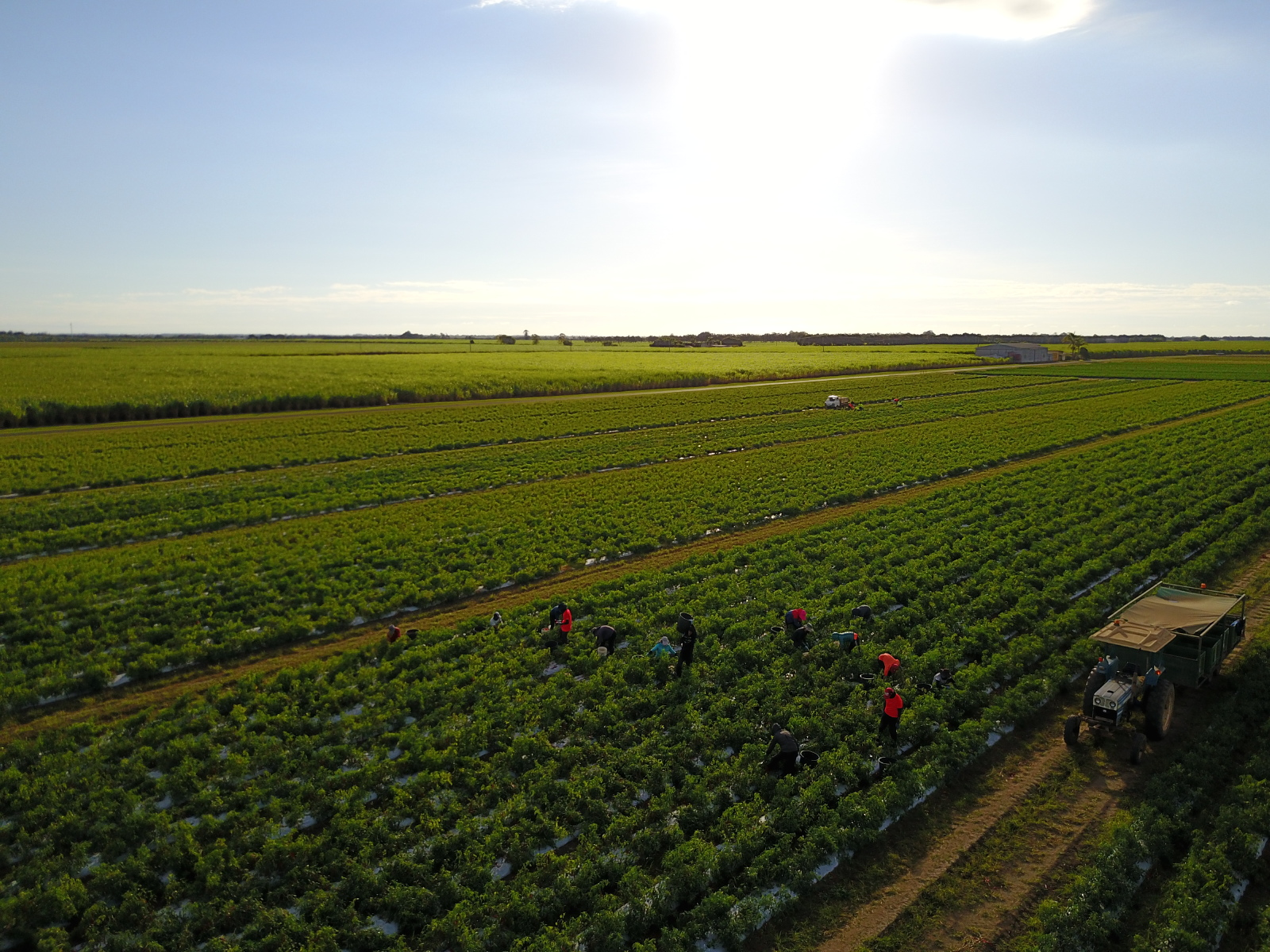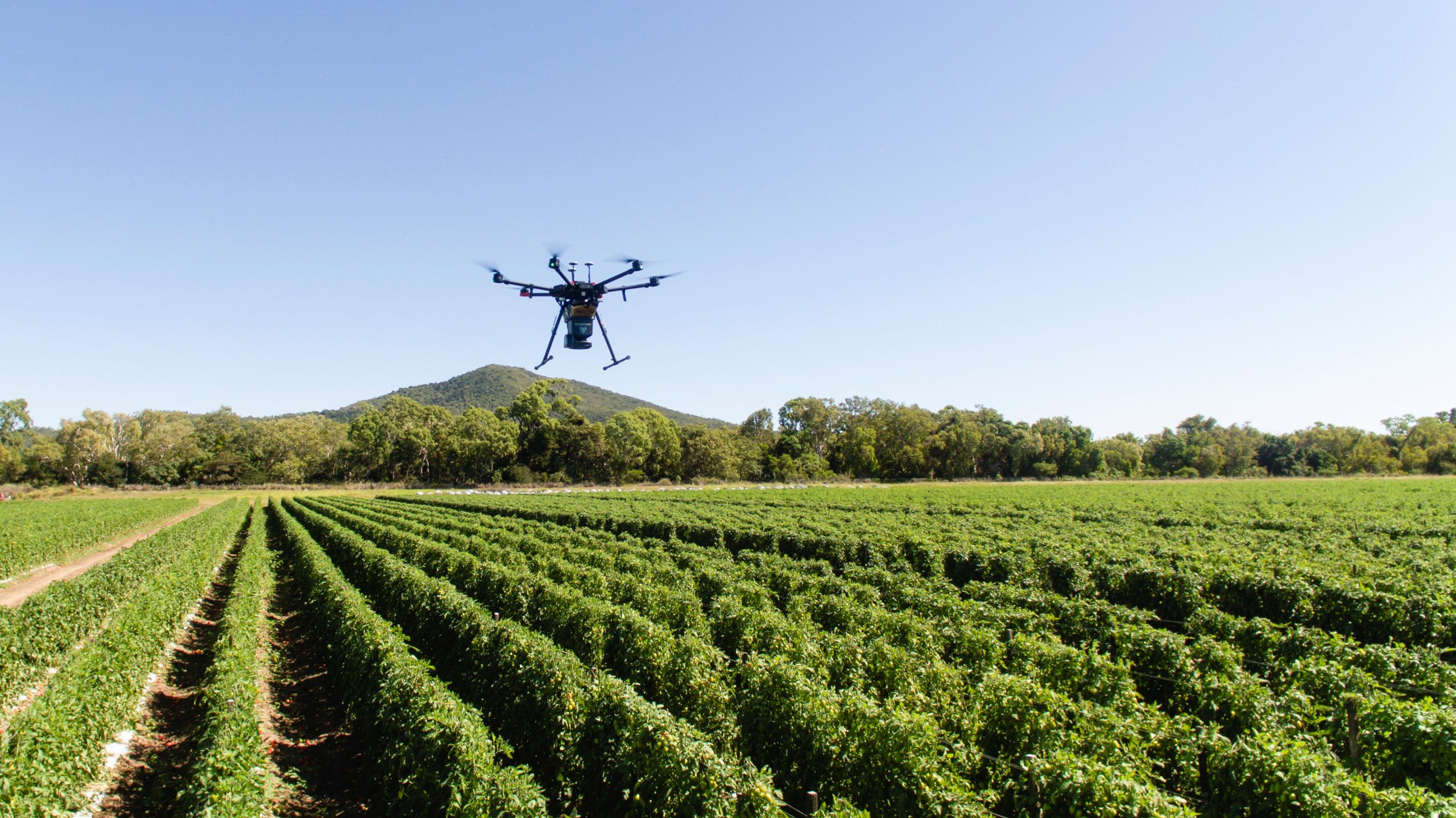
Undertaking fall armyworm preparedness training
1 December 2020
Understanding the Wide Bay-Burnett region
1 December 2020Growers are continually finding innovative solutions to reduce their impact on the environment. Situated on the Great Barrier Reef’s doorstep, North Queensland’s Bowen and Gumlu district is home to the largest winter vegetable growing region in Australia. Brooke Dobe from Bowen Gumlu Growers Association reports on the latest trials being conducted in the region.
Recently a project funded by the Department of Agriculture, Water and the Environment showcased the use of a drone to release parasitic wasps (Eretmocerus hayati) to control silverleaf whitefly populations in tomatoes and pumpkins. The project’s main objective was to provide an alternative method to manage silverleaf whitefly, as well as educate growers on the advantages of releasing beneficial insects via drone.
Silverleaf whitefly is a serious pest that affects crops productivity and growth. The whitefly hosts itself in many crops ranging from tomatoes and cucurbits to eggplant and beans, all of which are grown in the Bowen and Gumlu area. The pest is difficult to control as it can develop a resistance to standard insecticides.
Traditionally, growers and agronomists work together to control pests with insecticides and beneficial insect releases. Spraying insecticides on crops has the potential to run-off into catchments. Traditional methods of releasing beneficial insects on foot and by hand leads to a large proportion of the crop not being exposed to the beneficial insects.
Taking to the skies
Coming from a farming family in Bowen, Luke Jurgens identified a gap in the market and believed a drone could be best used to evenly distribute and expose a complete crop to beneficial insects. This process allows farming practices to become more environmentally friendly, effective and sustainable. Luke acquired and modified a drone and took to the skies under his newly established business, NQ Aerovation.
Bowen-based agronomist Jess Volker has been heavily involved in the project. Jess performed bug checks pre- and post-parasitic wasp release and noted a great decrease in the population of silverleaf whitefly. The growers that participated in the trial found they administered less pest management sprays. Performing less sprays reduces the risk of insecticide run-off into Great Barrier Reef catchments and decreases the likelihood of the silverleaf whitefly developing a resistance to insecticides.
Jess also educated growers on how to manage parasitic wasp populations in the off-season by maintaining cover crops as well as grass and bushland. These habitats reduce the risk of erosion and act as a barrier to prevent agricultural run-off. This allows growers to reduce their impact on the environment as well as maintain parasitic wasp and silverleaf whitefly populations in the off-season.
A positive reception
There has been a buzz around Luke’s new business venture, with the growers involved in the trial committing to continue releasing parasitic wasps via drone. Many more growers in the region are signing on to use Luke’s drone service in the future. Luke and Jess are looking into releasing other species of beneficial insects to target other pests.
Bowen Gumlu Growers Association would like to thank our partners, participating growers, Bugs for Bugs, Jess Volker and Luke Jurgens for their involvement in the project. This was an exciting project and we are eager to see where the future of ag tech takes us.
Bowen Gumlu Growers Association has been fortunate enough to gain funding from the Australian Government, Department of Agriculture, Water and the Environment, through the Communities Environment Program. This program helps conserve, protect and manage our local environmental priorities.
Find out more
For more information about parasitic wasp releases via a drone, please contact us on 07 4785 2860 or email idm@bowengumlugrowers.com.au.
VegNET – North Queensland is a strategic levy investment under the Hort Innovation Vegetable Fund.
This project has been funded by Hort Innovation using the vegetable research and development levy and contributions from the Australian Government.
Project Number: VG19008
Cover image: A drone hovers over vegetable crops in North Queensland. Drones are being used to release parasitic wasps to control silverleaf whitefly populations in tomatoes and pumpkins.
This article has appeared in Vegetables Australia – Summer 2020/21. To read the full publication, please click here.

